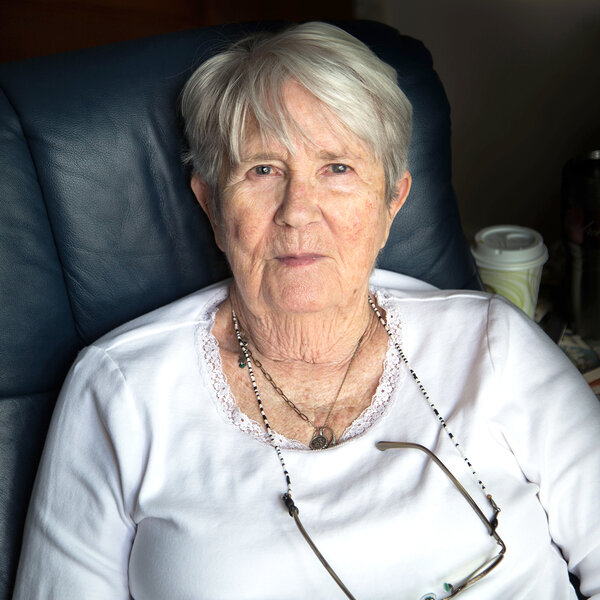
Geriatrics is a specialty that should adapt and change with each patient, says physician and author Louise Aronson. “I need to be a different sort of doctor for people at different ages and phases of old age.”Robert Lang Photography/Getty Images
Dr. Louise Aronson says the U.S. doesn’t have nearly enough geriatricians — physicians devoted to the health and care of older people: “There may be maybe six or seven thousand geriatricians,” she says. “Compare that to the membership of the pediatric society, which is about 70,000.”
Aronson is a geriatrician and a professor of medicine at the University of California, San Francisco. She notes that older adults make up a much larger percentage of hospital stays than their pediatric counterparts. The result, she says, is that many geriatricians wind up focusing on “the oldest and the frailest” — rather than concentrating on healthy aging.

Aronson sees geriatrics as a specialty that should adapt and change with each patient. “My youngest patient has been 60 and my oldest 111, so we’re really talking a half-century there,” she says. “I need to be a different sort of doctor for people at different ages and phases of old age.”
She writes about changing approaches to elder health care and end-of-life care in her new book, Elderhood: Redefining Aging, Transforming Medicine, Reimagining Life.
Interview highlights
On how people’s health needs become more complicated as they age
While old age itself is not a disease, it does increase vulnerability to disease. So it’s the very rare person over age 60 … and certainly over age 80, that doesn’t tend to have several health conditions already. So when something new comes up, it’s not only the new symptoms of potentially a new disease, but it’s in the context of an older body of the other diseases, of the treatments for the other diseases.
If somebody comes in with symptoms and they’re an older person, we do sometimes find that single unifying diagnosis, but that’s actually the exception. If we’re being careful, we more likely find something new and maybe a few other things. We add to a list [and], we end up with a larger list, not a…
This article was sourced from NPR.
